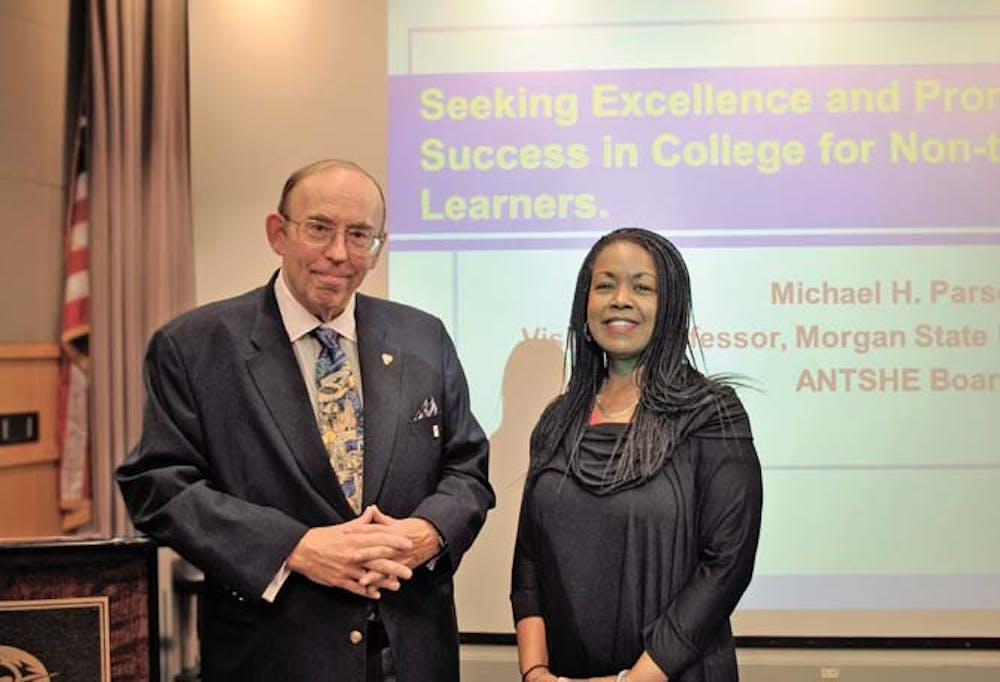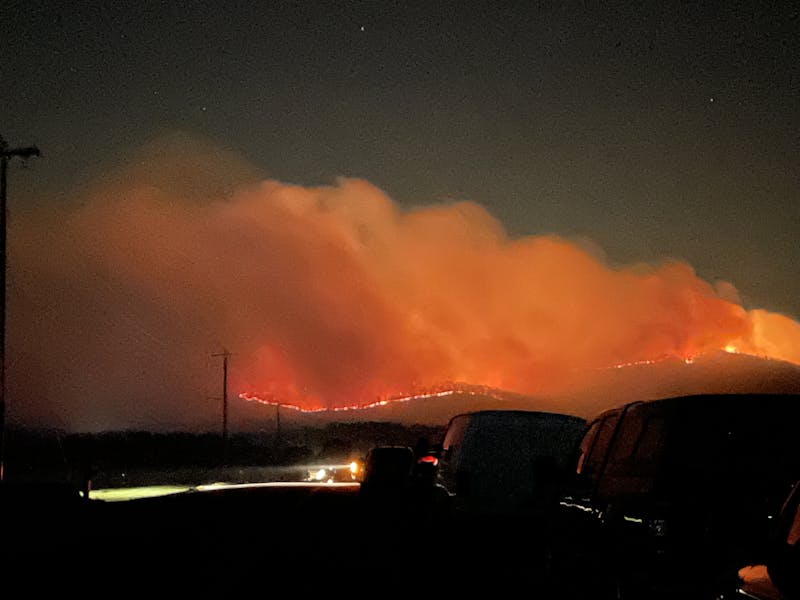How to improve college life for non-traditional students was the focus of a presentation last Thursday by Michael H. Parsons.
Parsons of Morgan State University came to Shippensburg University as a keynote speaker. Parsons, a native of Michigan, has been in education since 1965 and has been at a number of schools, most notably at Hagerstown Community College.
Parsons has worked with community colleges for more than four decades. He is the journal editorial board member of the Association for Non-traditional Students in Higher Education (ANTSHE). ANTSHE is an organization that focuses on helping non-traditional students, which includes people with incomplete educational credentials, unemployed or under-employed, veterans, the technologically dislocated and displaced homemakers.
The organization focuses on engaging those with incomplete credentials. For example, ANTSHE will award credit for veterans and establish a support system for them.
Parsons discussed through a PowerPoint presentation what he did for the institutions he worked for and what he does with ANTSHE. He talked about characteristics of students who are not typical 18 to 23 year-old undergraduates. and how they can improve.
Normally, for a student that is not your average undergraduate, there are a lot of potential reasons why somebody left college for a while and came back to finish what they started, or to learn something new. Many of those potential reasons include being the first in the family to attend college, lacking the funds to attend college or being a single parent.
Parsons stressed the importance of helping these students and being able to set them up for even more success than they originally planned on accomplishing. There were a plethora of different strategies he spoke about that could set these students up for a much more prosperous education experience than they first experienced.
One of the strategies was having many first year seminars for these students and having them interact with other students who are non-traditional. Another strategy would be having many community programs to help achieve a satisfactory learning experience.
Parsons shared many success stories of former students that were non-traditional and had gone on to have successful lives and careers.
This seminar showed that it is never too late to go back, get your degree and share your success story with the world.





The Slate welcomes thoughtful discussion on all of our stories, but please keep comments civil and on-topic. Read our full guidelines here.